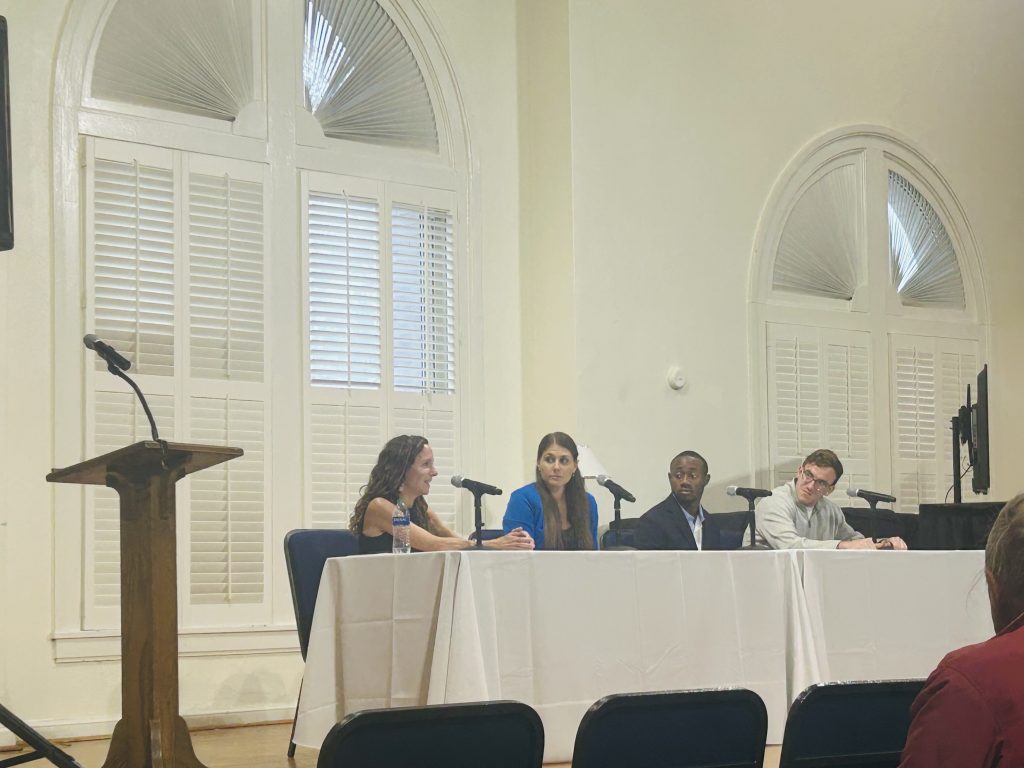“Of all the forms of inequality” Dr. Martin Luther King Jr. once said in a 1966 press conference, “injustice in health is the most shocking and the most inhumane.”

In honor of King’s impact on public health, Duke’s dean of Trinity College Dr. Gary G. Bennett delivered a powerful address Jan. 12 at the Trent Semans Center. Entitled ‘You have to Keep Moving Forward: Obesity in High-Risk Populations,’ Bennett discussed America’s Obesity Epidemic, and its disproportionate effects on Black women.
“More than 40% of the American population has obesity,” Bennett began. Incidence rates among Black women are the highest and have been since the epidemic began in 1955. “These disparities have not closed, and in many cases, they’ve widened over the years,” Bennett said.

Type two diabetes, hypertension, and cardiovascular disease are just some of the health risks associated with obesity. Compared to other racial groups, Black women are more likely to suffer from these conditions, as well as die from their effects. Furthermore, it appears that the efficacy of treatment options is significantly lower for patients of African descent.
But why do such disparities exist in the first place? According to Bennett, they can be attributed to a range of internal and external factors. “There certainly are physiological variations that are worth noting here, which is perhaps a challenge in all of obesity research.”
Research published in the journal Nature in 2022 found that, while there are different forms of obesity, that have shared ‘genetic and biological underpinnings.’ Environmental factors are also driving disparities. Black women are “exposed to more obesogenic environments, food desserts,” Bennett explained. With limited access to affordable and nutritious food, options for healthy eating are slim.
But perhaps most interestingly, Black women also have a range of sociocultural factors at play. “There are fewer within-group social pressures to lose weight,” Bennett maintained. Other sociocultural factors include higher body image satisfaction and higher weight misperception. “This is problematic in some ways,” he continued. While it protects against certain eating disorders and low self-esteem, “It does challenge your ability to achieve weight loss.”

For Black women, obesity is a complex public health issue that needs to be addressed.
But how? From medication to surgery, there are myriad potential treatment options. According to Bennett, however, the real key is lifestyle intervention. “It really is the foundation.” Comprised of three parts: reduced calorie diet, physical activity, and self-monitoring, lifestyle intervention is able to reach the widest range of participants.
Like other treatment options, the lifestyle intervention route shows racial disparities in its outcomes. Because of this, Dr. Bennett’s work focuses on developing methods that are designed with Black patients in mind.

At the forefront of his research is a new online intervention called iOTA, which stands for Interactive Obesity Treatment Approach. “This is a digital obesity approach that we designed specifically for high-risk populations.” The platform personalizes weight loss goals and feedback, which assist in program retention.
In addition, participants are equipped with coaching support from trained medical professionals. “This IOTA approach does a bunch of things,” Bennett said. “It promotes weight loss and prevents weight gain, improves cardiometabolics,” along with a host of other physical benefits. Results also show a reduction in depressive symptoms and increased patient engagement. Truly incredible.
Scholars like Bennett have continued the fight for public health equity- a fight advocated for by Dr. King many years ago. For more information on Bennett and his work, you can visit his website here.

Written by Skylar Hughes | Class of 2025



























